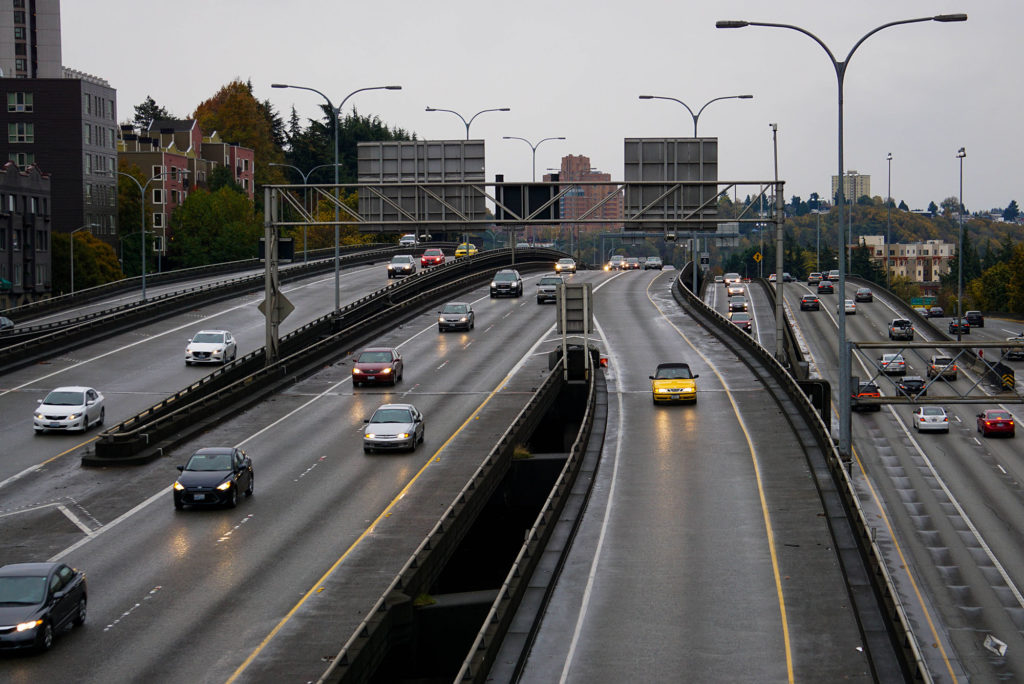Seattle Mayor Promises to Make Streets Emissions Free by 2030
New York City, Paris, Mexico City, London and eight other cities including Seattle, have signed onto the C40 Fossil Fuel Free Streets Declaration—a promise to use only zero-emissions buses by 2025 and to make major portions of their cities emissions free by 2030.
On Oct. 23, Mayor Tim Burgess joined the declaration that was made to combat climate change, reduce congestion and provide cleaner air for citizens.
“We have seen the devastating impacts of climate change all around us this year, from crippling hurricanes to deadly wildfires,” Mayor Burgess said in an email statement. “To fight climate change, we are joining cities worldwide to lead on meeting the goals of the Paris Accord, including a significant commitment to public transportation and electric vehicles that move people through our city faster and cleaner.”
A press release on the Mayor’s website mentioned that Seattle has partnered with King County in climate change action, with King County Metro committing to make any new buses emissions-free by 2020.
The statement also noted that the city has already made changes and incentives to move towards being emissions-free, including the Oil Home Conversion and Seattle Building Tune-Up programs. The Oil Home Conversion program provides incentives for updating to energy efficient heat pumps, while the Tune Up program helps building owners find ways to reduce energy costs.
The declaration pledges to fulfill this commitment by increasing the accessibility of alternative forms of transportation. This would be done by using zoning and building codes to create walk-able “urban villages.”
On the C40 website, the cities submitted detailed plans of steps taken and to be taken to make streets cleaner and more walker and cyclist friendly.
Professor of Public Affairs Jonathan Pierce spoke on the nature of pledges like this, describing them as aspirational goals. He noted that an issue for this type of policy is changes in authority.
“The probability that an individual would be elected, either mayor and/or enough individuals on the city council, to help block, revise this aspirational goal I would say is relatively high,” Pierce said.
Pierce also questioned the logistics of implementation and feasibility of such a drastic change. He mentioned that he generally views policies such as these as symbolic agenda items that keep the public engaged with the issues. However, he worries that sometimes residents and politicians sometimes don’t consider the economic impact of existing institutions and jobs.
“I think that doesn’t mean necessarily that we shouldn’t do this, but those are all things that need to be considered when taking this approach,” he said.
Economics Professor Stacey Jones said that industries that don’t adjust to similar policies in time might lose sales to those who are already producing electric cars, but she does not think that the technology is too far behind.
“My sense is that the auto industry has known that there’s been some potential shifts like this, they may have called the election in the wrong direction, they may have thought this was coming sooner rather than later, so I don’t think they’ll necessarily be surprised,” Jones said.
Jones did say that the economic impact is not entirely obvious at this point and that it is not clear how costs of electric vehicles would change. She said reactions from automakers may vary, as some would be afraid of being on the wrong side of the fight and damaging their brand, while others may still fight against these policies.
Pierce spoke to the importance of automakers in pledges such as these, emphasizing that the goal of the industries involved is not pollution, but profit.
“The negative externality is pollution. So, [lawmakers should] make it not profitable to pollute, [and] put such regulations and prices on that cost to pollute so it no longer is feasible,” he said.
Pierce acknowledged however that this type of regulation would need to happen at the federal level, though if enough cities pass policies such as this it could create enough pressure on the federal government.
Mayor Burgess’s plan is a step in that direction, promising to collaborate with partner cities to “lead a nation-wide EV procurement effort to spur market innovation for zero emission light, medium and heavy-duty vehicles by leveraging our combined purchasing power.”
Pierce added that cities could take other steps to reduce emissions. He pointed to London, which created a tax on vehicles entering the city to mitigate vehicle congestion. He said that this would have a similar impact on emissions as a ban would, as it places expenses and restrictions on drivers.
Lastly, Jones suggested that timing is critical for this pledge. She said that the next step is to build infrastructure and incentives for citizens to gradually prepare for the commitment.
“It’s somewhat radical,” Jones said. “But I think it’s possible, having witnessed other changes take place that didn’t seem possible.”
Sofía may be reached at
swells@su-spectator.com



